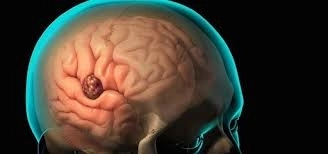
Precise and Safe Brain Tumor Surgeries by Dr. Mohamed Ibrahim Zoheiry
Published on: 2025-06-23 | Written by: Dr. Mohamed Ibrahim Zuhairy, Consultant Neurosurgeon
Dr. Mohamed Ibrahim Zoheiry, Consultant of Neurosurgery, emphasizes that brain tumor surgeries have become significantly safer and more precise thanks to advanced surgical techniques and high-resolution imaging.
In this article, Dr. Mohamed Ibrahim Zoheiry explains how brain tumors are removed with great accuracy, and what measures help minimize complications while preserving critical brain functions.
When Is Brain Tumor Surgery Necessary?
-
When the tumor is pressing on vital brain areas
-
In cases of symptoms like chronic headaches, seizures, or weakness
-
If imaging confirms the tumor is accessible surgically
-
For slow-growing benign tumors that still affect brain function
According to Dr. Mohamed Ibrahim Zoheiry, the decision to operate depends on the tumor’s size, location, and the patient's overall condition.
How Is Brain Surgery Planned?
Before surgery, the patient typically undergoes:
-
Advanced MRI scans to accurately map the tumor
-
Functional MRI to identify and avoid essential brain areas
-
Multidisciplinary consultation between neurosurgeons and anesthesiologists
-
Physical and psychological preparation for surgery
Dr. Mohamed Ibrahim Zoheiry explains that thorough planning is the first key to a successful and low-risk surgery.
What Are the Latest Techniques in Brain Tumor Surgery?
Techniques used by Dr. Mohamed Ibrahim Zoheiry include:
-
Surgical microscope for enhanced visualization and precision
-
Neuro-navigation systems to guide the surgeon within the brain
-
Endoscopic-assisted surgery for deep-seated tumors
-
Awake craniotomy, allowing real-time monitoring of speech or movement functions
These tools help achieve maximum tumor removal with minimal impact on healthy tissue.
Are There Risks After Surgery?
Dr. Mohamed Ibrahim Zoheiry explains that while risks have greatly diminished with modern methods, some temporary side effects may occur, such as:
-
Headache or fatigue
-
Temporary weakness in movement or speech
-
Mild bleeding or swelling
-
Occasional need for neurological rehabilitation
Conclusion
Brain tumor surgeries today are much safer and more accurate when performed by an experienced neurosurgeon using the right technology. Dr. Mohamed Ibrahim Zoheiry encourages patients not to fear surgery when it is recommended, as timely intervention can be life-saving and prevent neurological decline.

